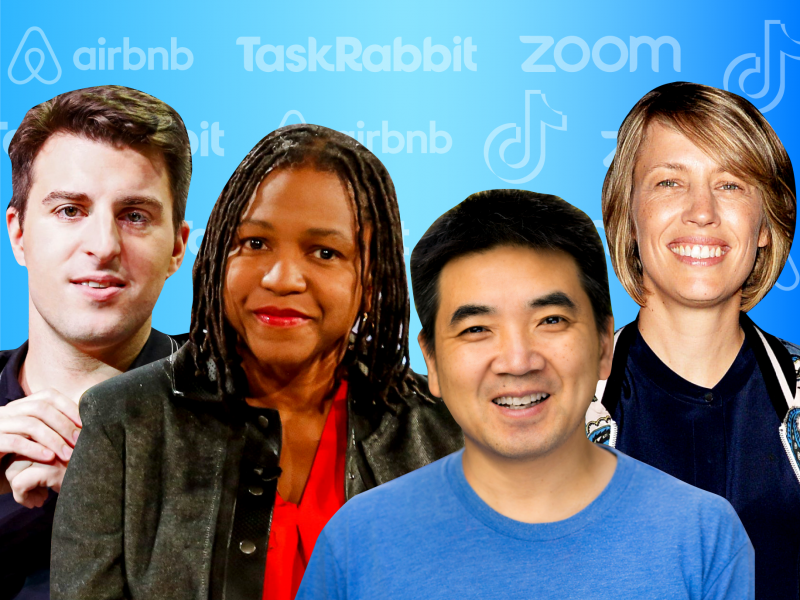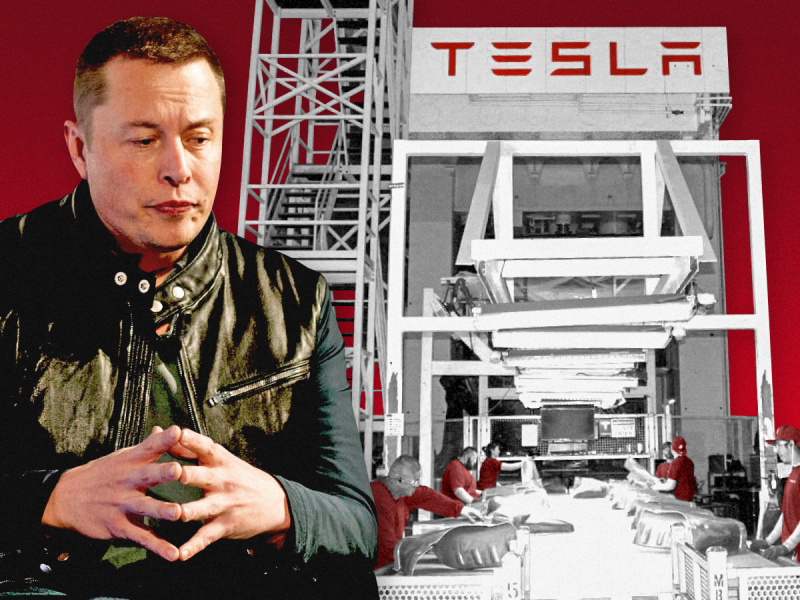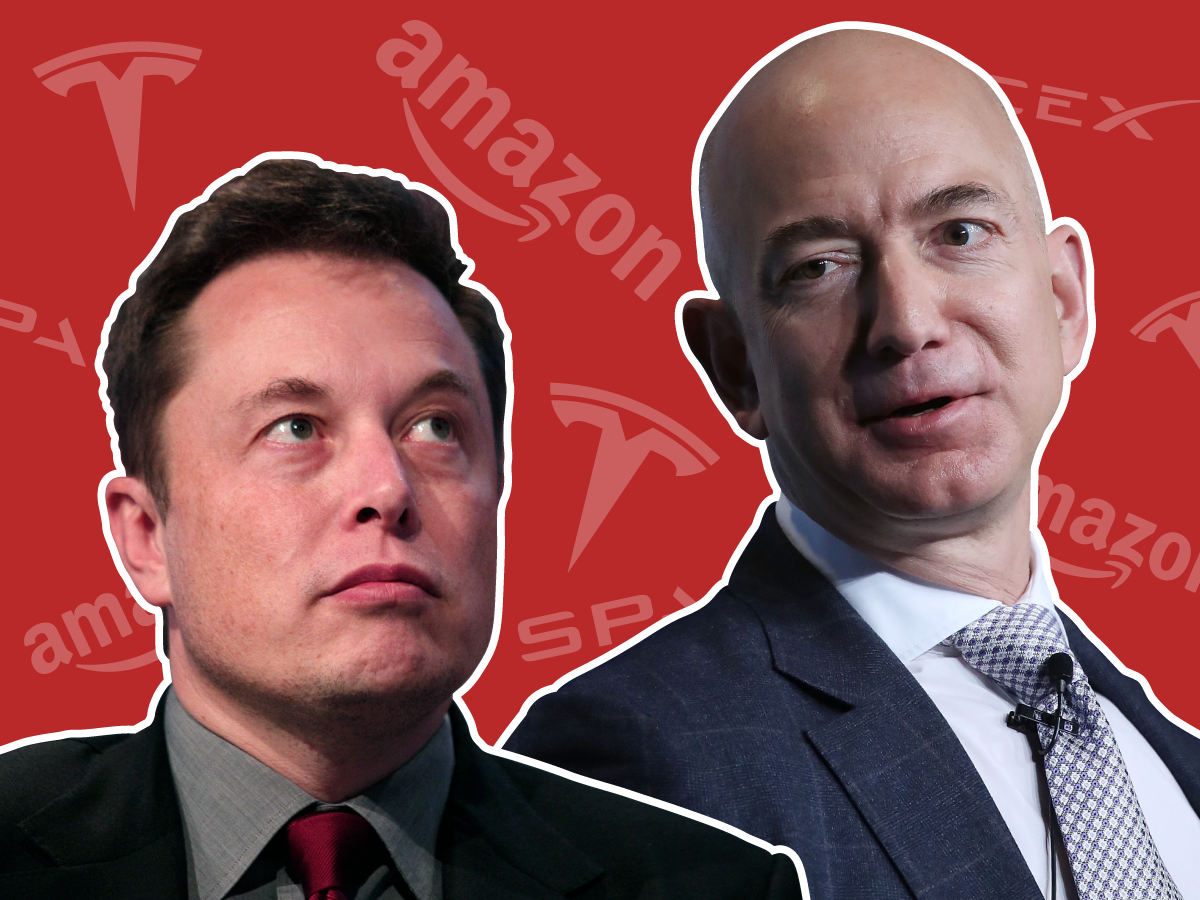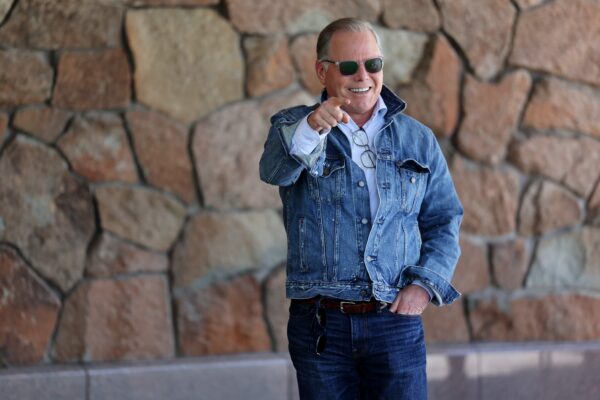Hello dear readers and welcome back to Trending – your Wednesday rendez-vous for all things tech. If you want to get Trending in your email inbox every week, just click here.
This week: Tech CEOs look into the future

Remember the old saying about never letting a crisis go to waste?
I picture Rahm Emanuel reciting the phrase amid the Great Recession, but VMWare CEO Pat Gelsinger credits the quote to Churchill (an attribution that, it turns out, is a matter of dispute).
Regardless of who said it first, the idea of exiting the coronavirus crisis in a different - and hopefully better - place is something we're all thinking about now. And VMWare's Gelsinger is among more than 200 CEOs who Business Insider asked to peer into our post-pandemic future.
Some of my favorite predictions from tech execs:
- Clean skies - "We have an opportunity post pandemic to deliberately choose when commuting is and is not worth the cost of the air we breathe," says Tinder CEO Elie Seidman.
- A "Roaring Twenties" reaction - Eventbrite CEO Julia Hartz notes that the 1918 Spanish Flu was followed by the roaring twenties "as the world came together to experience a renaissance of theater, music, and art."
- Robots! - "For some people it's becoming clear that having robots that can free people from directly engaging in dull, dirty, and dangerous work is a thing that would be valuable," says Marc Raibert, chair of Boston Dynamics.
My job doesn't meet the "dull, dirty and dangerous" criteria most days, so the droids probably won't visit my home office anytime soon. Then again, after seeing the video of a quadruped Boston Dynamics bot roaming a park in Singapore and urging residents to social distance, I'm on the lookout for the unexpected.
Chamath 2.0
Speaking of unexpected appearances, the return of Chamath Palihapitiya is quickly becoming a fascinating Silicon Valley subplot of the coronavirus crisis. The outspoken 43-year-old tech investor and early Facebook exec's venture capital firm imploded in 2018, with some insiders blaming Palihapitiya's ego and scattershot strategy. Now, as Melia Russell reports in a must-read feature story, Palihapitiya is back and having a moment.
1. In recent weeks Palihapitiya has taken two companies public, raising nearly $1.1 billion, at a time when the rest of the tech industry recoils from the public markets.
Note that there were only 9 IPOs in the US in April. Palihapitiya did 2 of them.
2. The companies he's taken public are Special Purpose Acquisition Companies, or SPACs. These are essentially shell companies, bankrolled by investors to carry out a mission of finding and acquiring a promising business.
In other words: Investors are writing a blank check to the person whose last venture collapsed in a cloud of acrimony.
It's too early to call this a comeback story. But it's certainly a page turner.
Tesla and Amazon have something in common

The standoff between Elon Musk and the local authorities makes for great theater, but it's worth remembering that there are real people involved here. Workers at Tesla's auto plant in Fremont, California, told Business Insider that they're worried that if they don't return to the assembly line they'll lose their jobs.
We've already seen plenty of evidence that working in industrial facilities, like factories and warehouses, carries real risks of contracting the virus. Musk only needs to drive 38 miles (about 15% of a Tesla Model 3's range) from his Fremont factory to the Amazon warehouse in Tracy, California, to see this first-hand. Amazon confirmed last month that a worker at that facility died of COVID-19. As chief tech correspondent Julie Bort previously reported, there are more than 600 Amazon warehouse workers across the US with confirmed coronavirus infections.
Until now, Amazon has had some political cover (despite taking heat from Congress) because the company could argue that the risks of infection at its warehouses were being borne in order to provide Americans with "essential services" like delivering food and toilet paper.
As Eugene Kim reports, however, Amazon has quietly begun lifting the quantity limits it had imposed on merchants shipping non-essentials goods to its warehouses (think electronics and sneakers). It's part of Amazon's plan to return to normal.
That means the justification for Amazon workers to punch in everyday and risk virus exposure will be closer to the reasoning espoused by Musk for his Tesla factory workers: It's not about heroic frontline workers providing essential services anymore, it's just about getting back to business.
That approach may resonate with certain audiences. But it's likely to sharpen an uncomfortable contrast between two classes of tech employees who often work for the same company - the stock-optioned, work-from-home programmers and the mask-wearing laborers.
Recommended Readings:
Not necessarily in tech:
It's time to say goodbye ... until next week.
Thanks for reading, and remember, if you like this newsletter, tell your friends and colleagues they can sign up here to receive it.
- Alexei











